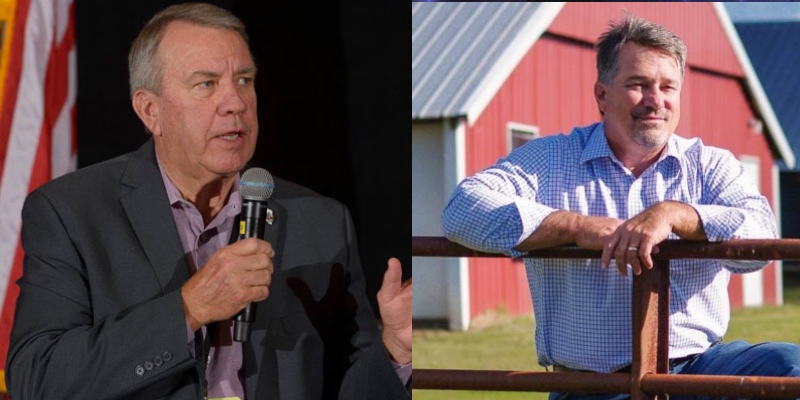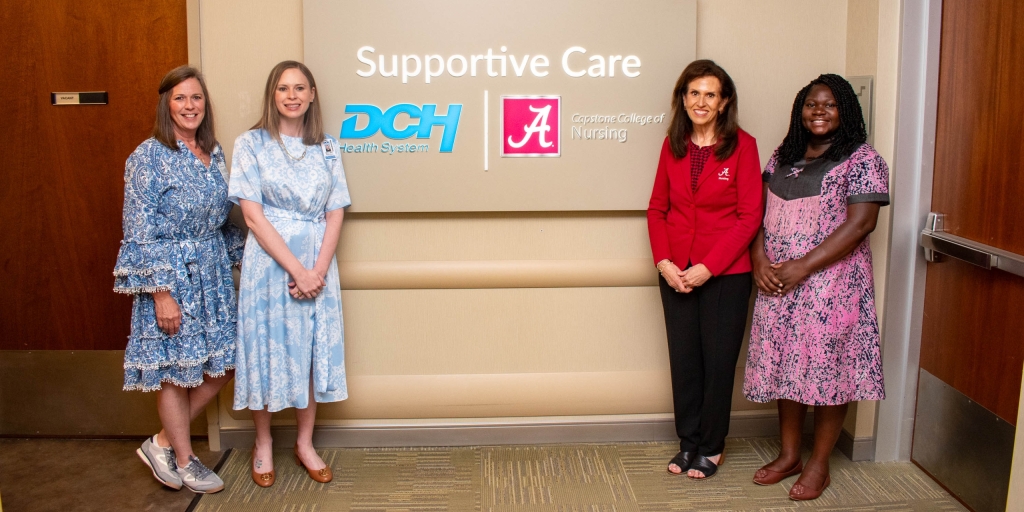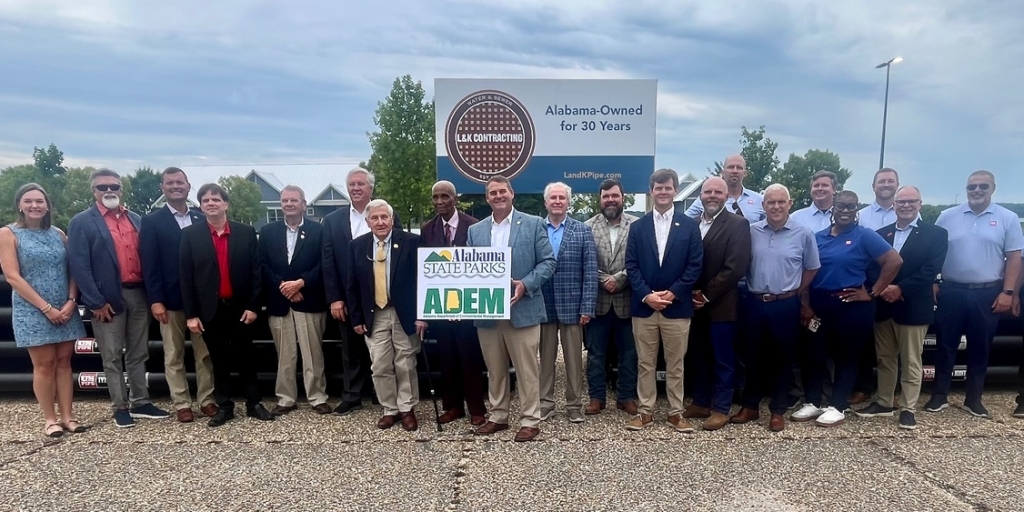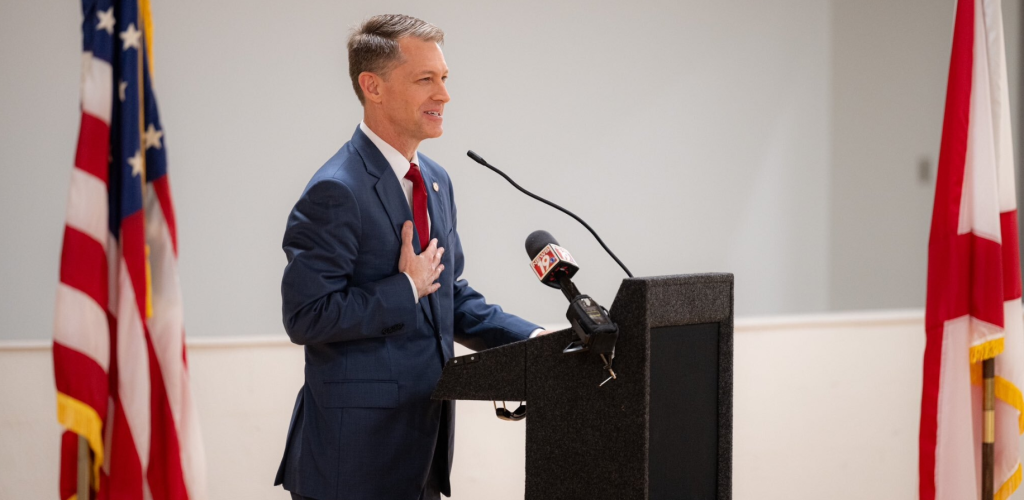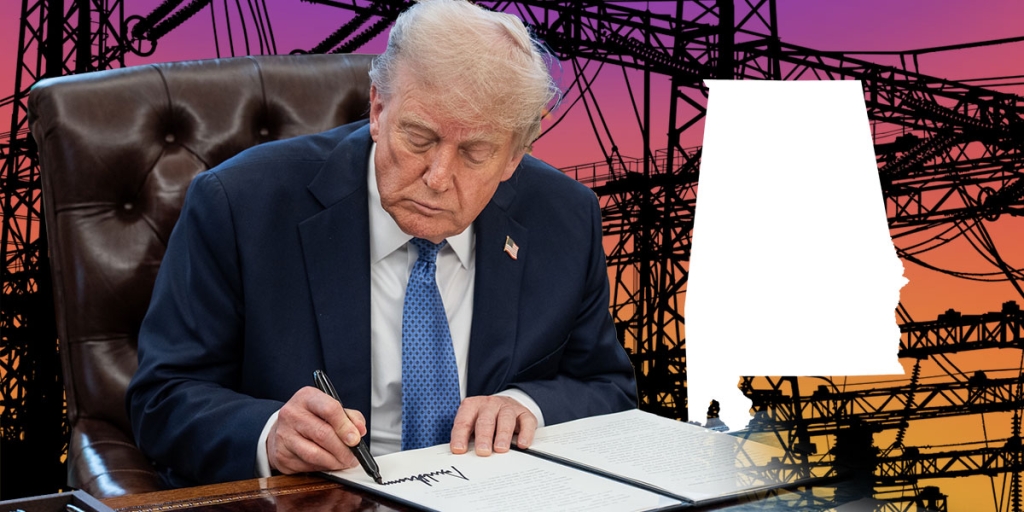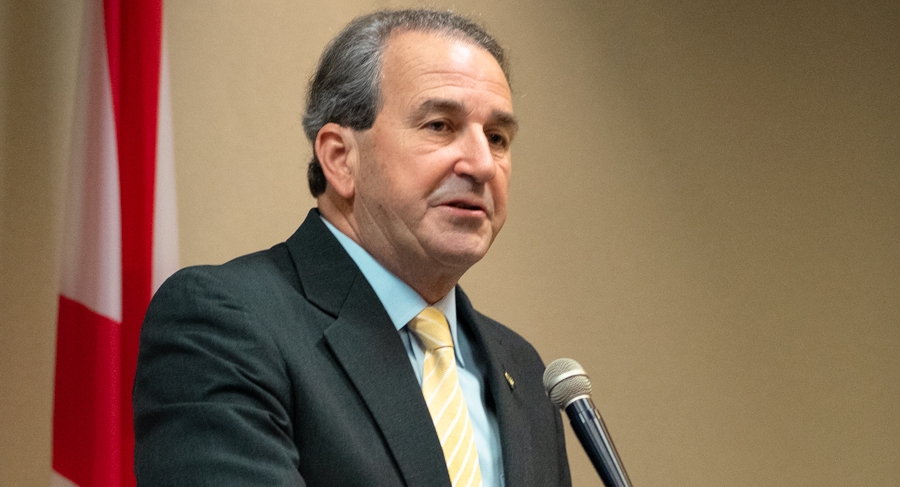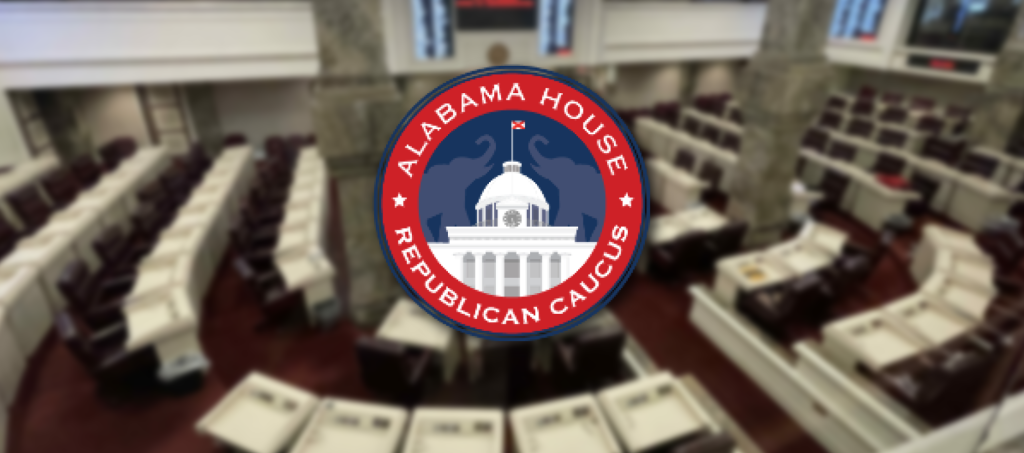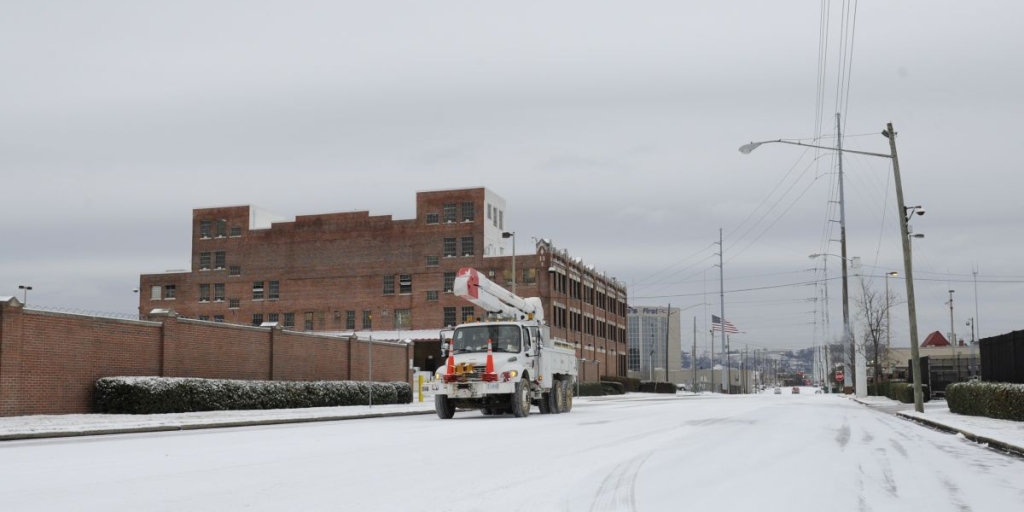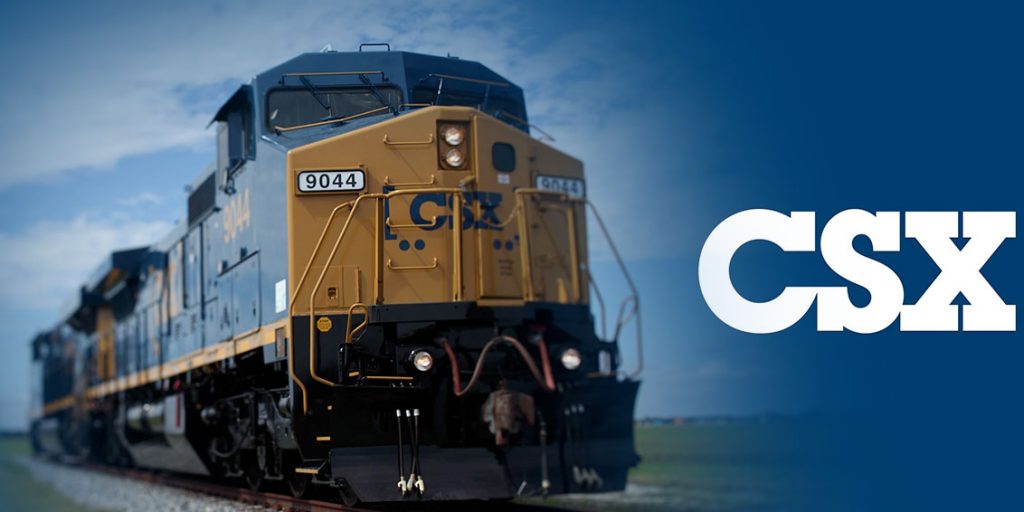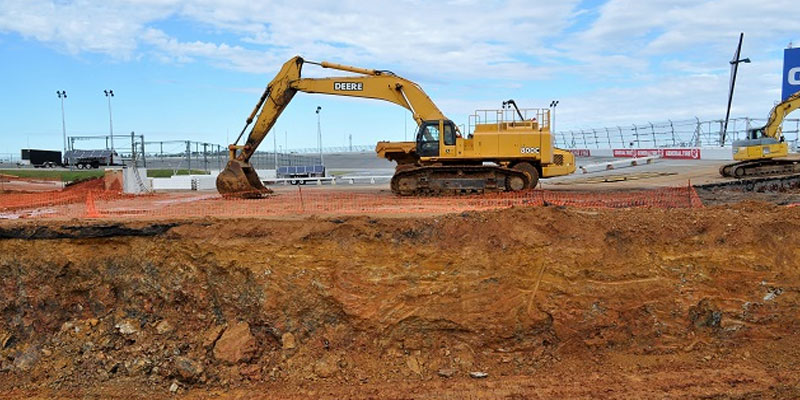Yellowhammer News sat down with Speaker Mac McCutcheon (R-Monrovia) and Majority Leader Nathaniel Ledbetter (R-Rainsville) to discuss the “red wave” that resulted in the largest Republican supermajority ever in the Alabama House of Representatives, the major issues expected to be the focus of the 2019 legislative session and their respective leadership roles and styles.
In the second of this three-part series, we touch on a few of the legislative issues that the Alabama House Republican Caucus, led by McCutcheon and Ledbetter, will likely have to tackle this coming spring, including the hot-button topics of infrastructure, the lottery and ethics reform.
They also mentioned economic and workforce development, along with education reform and school safety as focuses moving forward.
If you missed it, you can read the first part here. Check Yellowhammer News in the coming days for part three.
Both McCutcheon and Ledbetter applauded the state of Alabama’s economy and the boom seen under recent Republican leadership in the state. However, they used this as a natural segue into talking about the major issues facing the legislature on Goat Hill come March, saying that with the success comes even more work needed to continue the positive trend and reach greater heights.
This was articulated especially well by McCutcheon’s new chief of staff Mark Tuggle, who decided not to run for re-election to a third term in the State House this election cycle.
“We have a record that we ran on [as a Republican House Caucus]. We had brand new people, good candidates, who ran on our record, our eight-year record. Voters, the constituents, are buying into this record. They have seen the successes. They’re seeing it in their wallet, they’re seeing it with some of their kids and their ability to have some de minimis parental choice in education and that’s a big deal,” Tuggle outlined.
“We’ve made generational changes, decisions that are going to impact this state for generations,” Tuggle added. “And we’re just in the infancy of seeing that [come to fruition]. But people are seeing it. And they’re buying into the narrative, they’re buying into our leadership and the Republican brand. And I say, going forward, we’ve got to govern to protect that brand and not take any of it for granted.”
McCutcheon said, “I tell people all the time – the best days are ahead in Alabama. And I really believe that.”
“I’m excited. As the Speaker said, I think our best days are ahead of us,” Ledbetter remarked.
He continued, “For me, in my lifetime, the growth in the economy going the way it is in Alabama, I don’t know that I’ve ever seen it moving this strong. And I think what we’ve got to do as leaders, we’ve got to quit kicking the can down the road and solve problems.”
‘Our biggest issue’
While there will be several key items on the 2019 legislative agenda that cannot be kicked down the road, perhaps the “biggest issue” will be infrastructure.
Ledbetter advised, “The biggest problem we’ve got facing our state right now, for us to continue the economic growth that we’ve seen over the past two years, is we’ve got to fix our infrastructure.”
He continued, “You know, when we’ve got CEOs of companies – Mercedes stands up and says unless we get the infrastructure fixed, it’s going to be harder for us to expand because we can’t move our product from Tuscaloosa to the Port of Mobile – it gets tougher and tougher. So, I think infrastructure is our biggest issue.”
McCutcheon also emphasized the importance of the issue and the gravity of the task ahead for the legislature.
“One of the big issues we’re going to face early on in this next session is infrastructure, transportation. There’s no doubt about that the need is there, we’ve got to continue to educate the public – we’re working through all of the issues that are out there with previous infrastructure bills,” the speaker said.
This is an item that affects every Alabamian, and it hits where it matters most – not only the wallet, but road safety can quite literally be a life or death issue. It also might mean, metaphorically, life or death for the state’s economic surge.
“I think if we don’t step up to the plate and fix it, my fear is that growth that we’re seeing right now in our state’s economy is just going to hit a brick wall and stop, cease to continue. That’s how important it is,” Ledbetter advised.
While important, the infrastructure issue is also perhaps equally as complex, even though some people only equate it to raising revenue, as the last time that was done in the state was 1992.
“Some people want to just stop when you mention ‘gas tax,’ but this thing is bigger than that,” McCutcheon explained.
“It’s about funding formulas, how do you distribute money with counties and cities – we’re talking about road miles in each of our counties versus our cities. Looking at revenues coming in the populated areas, for example I-65, the major route north and south in our state that connects North Alabama to the docks in Mobile. All of these issues are important. And so because of that, the governor has said herself, as well as the Senate [leadership] and myself here in the House, that infrastructure is going to be a priority moving forward,” McCutcheon detailed.
He continued, “We’ve got to have some new revenue, there’s no doubt about that. Gas tax at the pump is going to be a part of the discussion. But also funding formulas, also maybe having some legislative [input] into how the money’s being spent on certain projects to help and assist ALDOT, looking at a growth product so it’s not another 26 years later and we’re sitting here struggling with this issue again, these are all things that are going to be a part of that bill.”
Changing technology is an interesting facet of the discussion, not just with the advances in fuel efficiency.
“Electric vehicles, too,” McCutcheon said. “When you look at the technology and you talk to some of the auto manufacturers, they’re talking about in 5-10 years a huge percentage of all vehicles on the road will be electric. Well, how do we maintain revenue for those vehicles? That’s got to be a part of this discussion and this bill.”
While some of these important details certainly require nuance in an eventual infrastructure proposal in 2019, Ledbetter wanted to remind readers that this comes down to the local level across the state, from rural areas to urban ones.
“My county, just in my county, which Dekalb is a rural county, the [local] superintendent [of education] got me some numbers for our buses, and our buses had to travel over 30,000 miles last year alone just to go around bad bridges. So, it’s also become a safety factor. And it’s been [26] years now since we increased the gasoline tax [in Alabama],” Ledbetter shared.
The legislators will need to hammer out all of the crucial details and a final proposed bill is still a ways off, but the majority leader framed this as not a political consideration, but as a policy necessity.
“I don’t know what the whole package will hold, but we’ll see going forward. I certainly think that infrastructure is a major, major issue for our state. And, you know, the thing about it is if we are truly public servants and not politicians, we need to fix the problems for the next generation and not the next election,” Ledbetter said.
How does Trump fit in?
McCutcheon and Ledbetter also stressed the importance of Alabama having the requisite matching funds if the Trump administration and Congress are able to pass federal infrastructure legislation in the coming year.
McCutcheon advised, “We can’t do all of the necessary things we need to do for our roads without some federal dollars coming in. Because of that, if we can get support from Washington, D.C., it’ll go a long way of helping us [in Alabama].”
While federal support is needed in Alabama, the state also will have to do its part to utilize that support.
“The last thing we want to see is for Washington, D.C. to pass some type of road/transportation funding that requires a match and then here we are in Alabama and we don’t have any money to match with and we lose out,” McCutcheon emphasized.
“That’s [another] problem we have right now,” Ledbetter added. “If the federal government were to pass an infrastructure package, and I do think we’ll see that bill coming, we couldn’t do anything with it right now. Because we don’t have the matching funds for it. There’s not going to be a federal infrastructure package that’s not going to call for matching monies. So, with our state’s situation right now as far as our roads and bridges, we don’t have the money to match. We’d lose billions and billions of dollars [in federal funding] if they were indeed to get that package passed through Congress if we don’t have something in place in Alabama.”
The speaker and the majority leader both think that President Donald Trump’s support for infrastructure funding, including a gasoline tax increase, could help Republican state representatives in Alabama, some of whom may be on the fence ahead of the session, get behind the issue, given the president’s approval ratings in the Yellowhammer State.
“I think certainly with his help and locally, the governor met with our Caucus and that was her primary focus when speaking with us – she said we’ve got to do something with our infrastructure, we’ve got to work on a bill that’s going to be productive for all our counties and cities and for the state,” Ledbetter shared.
He continued, “I certainly think [President Trump] getting behind it and then our governor getting behind it is going to help tremendously. And we’ve got lots of different folks in our state pushing it, too. Truckers, farmers, all these people see a need and they’re on board.”
Ledbetter also noted that the Caucus’ members are included in the large, diverse group of Alabamians who see the need for an infrastructure bill in 2019.
“I think that is the general sentiment [that there is a need] … I think, for the most part, we’ll have wide support for it, if it’s the right bill – we’ve got to get the right bill. And everybody’s got to have input for it. But once that happens, I think we have a really good chance, I really do,” Ledbetter added.
‘We’re just going to try and put a little more common sense into a good ethics bill’
The speaker had a few comments to frame the discussion around an anticipated ethics reform bill in 2019, with the Attorney General’s Office and the Ethics Commission, along with the Alabama Code of Ethics Clarification and Reform Commission, set to play major roles in this debate.
“I think you’re going to see some discussion on possible ethics amendments,” McCutcheon advised. “We’re not trying to [redo] the ethics bill by any means, we have a good ethics bill in place, it’s doing its job – as it should. And I support that, it’s a strong ethics bill. But there are some little things in it that need to be amended and clarified. I like to say that we’re just going to try and put a little more common sense into a good ethics bill. So, you’ll see some discussion on ethics coming in 2019.”
‘They’re constantly calling me about the lottery’
Another interesting discussion will involve whether or not to allow Alabamians to vote on a constitutional amendment that would institute a lottery in the Yellowhammer State.
On this, McCutcheon shared some of his personal perspective.
The speaker said, “When you look at some districts that are on out state lines, on our state borders, every state around us has a lottery.”
“I’ll just use my district as an example, up there in north Alabama – constituents in my district, they’re constantly calling me about the lottery and talking about all the Alabama tags they see going across the Tennessee line to buy a lottery ticket. And they’ve said, ‘Representative McCutcheon, when are y’all going to address this issue in Alabama?’ So, I think the people are just slowly but surely educating themselves and they’re talking about it, so I think you should maybe see some good debate on a lottery bill this time,” McCutcheon added.
Both ethics reform and the lottery segued well into Ledbetter’s concluding sentiment.
“There’s a lot of talk about ethics reform. And there’s been a lot of talk about the lottery. And then there’s talk about the prison system and other issues. So we’ve had a lot of success, we really have and we’ve been blessed to see Alabama take the strides it has over the last few years. But, with that being said, we’ve got a lot to do,” Ledbetter remarked.
He concluded, “I think there’s tremendous opportunity for us to do good. There’s a lot of work to be done, but I know that with the group that we’ve got and the leadership that we’ve got, we’re willing to do it. And I think that’s good for our state.”
In Yellowhammer News’ third part of this interview series, we will provide insight into the respective leadership style and perspective of both McCutcheon and Ledbetter, explaining how they will lead the Caucus and see some of these issues solved through legislation.
Sean Ross is a staff writer for Yellowhammer News. You can follow him on Twitter @sean_yhn




